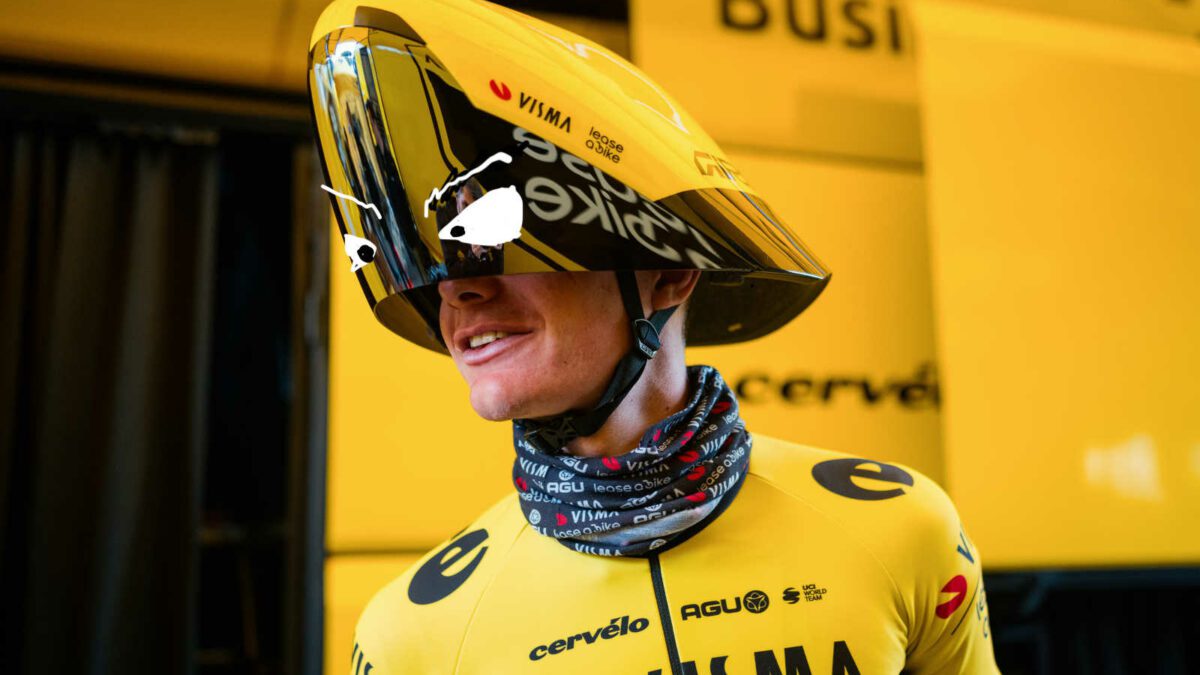Giro calls UCI out over helmet fiasco
Company issues polite reminder that it was the governing body itself that approved the helmet it is now investigating

The controversy around aero helmets may finally be coming to a head. Giro, with its absurd-looking Aerohead II, appears to have pushed the limits too far. The limits of what, exactly, is unclear. As the UCI opens an “investigation” into new aero TT helmets from Giro and several other brands, the company is joining the growing chorus pushing back against cycling’s governing body.
Giro’s complaint is quite straight forward. Why is the UCI investigating a helmet it so recently approved? The organization sets out clear and impossibly detailed regulations about what can and what cannot be used or worn by athletes in competition. These rules are often so wildly detailed that they become a point of ridicule in themselves. But, as Giro points out, the Aerohead II follows all of the rules that the UCI set out.
Jonas Vingegaard says we will all shut up once we see how fast the new Giro helmet is
Giro isn’t the only voice speaking out against the UCI, either. Both Specialized and its star rider, Remco Evenepoel have publicly criticized the UCI for reversing its approval of the “aerosock” helmet. That decision is especially flagrant as the TT5 helmet has been a staple of Specialized-sponsored team’s equipment for a while now. It is not exactly new.
Whatever the UCI’s problem with the helmets is, it should have been made clear before the season started. Not once the helmets appeared in conversation. With much of the conversation focusing on the extreme aesthetics, or lack thereof, of this latest generation of helmets, it appears UCI is responding more to the public’s negative reaction than to any real safety concerns.
A growing problem of reactive regulating
TT helmets are not the only area where the UCI is facing mounting criticism for playing fast and loose with the rules. Not that the rules are only being occasionally enforced, or at least not only that. But also that the organization appears willing to change the rules on a whim, and with no notice or any appearance of concern for how the changes impact riders and sponsors.
Just weeks ago, a team was forced to scrounge for pedals and shoes after the UCI banned a new pedal design just an hour before the start of the second stage of racing at Étoile de Bessèges stage race.
Last summer, the organization found itself being bluntly criticized by its most recent world champion after changing the rules for start order at mountain bike world championships. Tom Pidcock called out what he described colourfully as a “rule changing shit show” when the UCI changed the start order rules to blatantly benefit a star rider just days before the start of XCO mountain bike world championships and, obviously, well after riders had any opportunity to change their season to reflect the rule change.
While these might seem like small or trivial problems independently, they could add up to a big problem for the UCI. Brands invest heavily in developing new equipment, as Giro points out. Athletes invest time and their careers to compete on the basis of regulations. If the UCI starts messing with both too freely, it could start to face backlash on both fronts.
